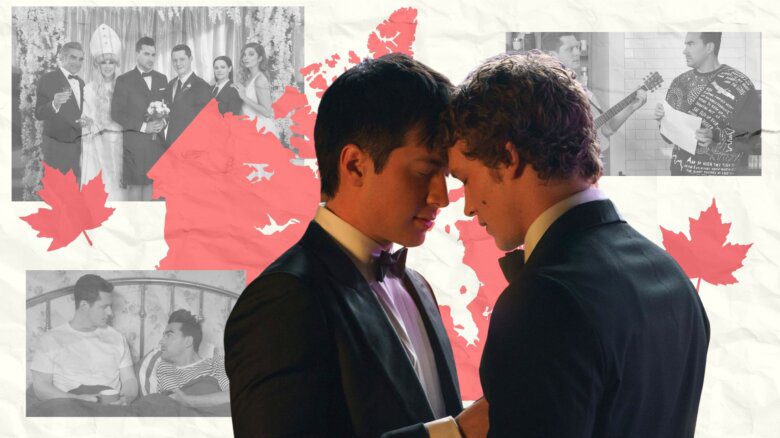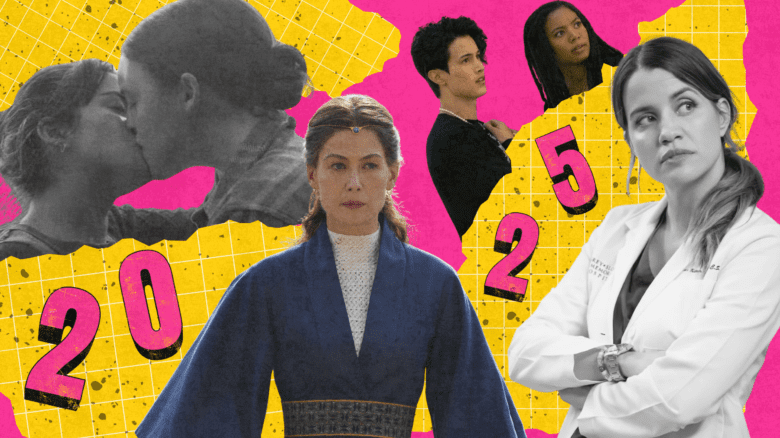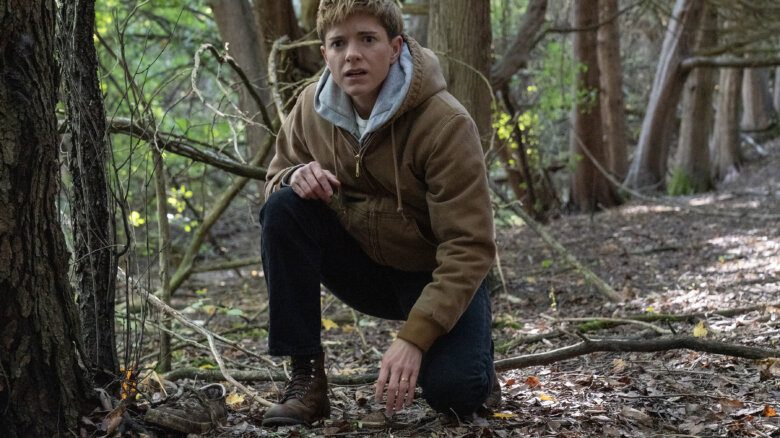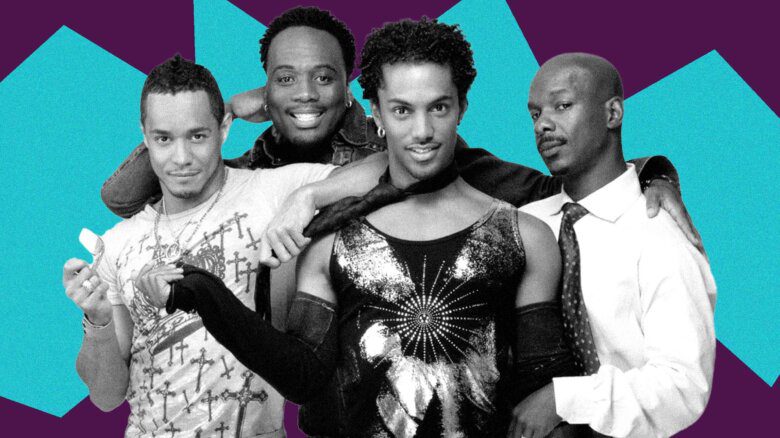“I’m actually in a public bathroom right now,” Evie Macdonald tells me over the phone, laughing. It’s a balmy fall day in Melbourne, and the 16-year-old has stepped away from her social obligations to do press. “I’m shopping around Melbourne, with my friends, having a day out.”
In many ways, Macdonald is a typical teenager. But we’re talking because she’s starring as Hannah Bradford in First Day, a 2020 children’s drama about a 13-year-old trans girl’s first day at high school, which in Australia starts in Grade 7.
First involved with the media at age six, Macdonald started speaking publicly about trans rights at 13. The whirlwind of international publicity—and the dark side of internet commenters—has made her rethink her public advocacy. She still wants to spread awareness, but on her own terms.
First Day debuted in 2020, and was picked up internationally on Hulu, the BBC and most recently CBC Gem, where it’s streaming free for the next couple of months.
The show was created by director and writer Julie Kalceff after a close family member came out at age six. Kalceff wanted to create kids’ media, “so that this girl could see someone like her on TV, and this family could know that they weren’t alone,” she told The Advocate in a 2020 interview. The series started off as a short standalone film, made in 2017 when Macdonald was 12.
“I was 12, and I was playing a 13-year-old, so I was pretty happy,” she recalls. “I was like, ‘Yeah, I get to be older than I normally am.’”
The show follows Hannah, who is keeping her transness a secret from other students. But a bully from her old school who deadnames her poses a problem, as does the fact she’s forced to use the sick bay toilets instead of the girls’ bathroom. First Day grapples with some complex issues—outing, discrimination, privacy—in ways that a young audience can understand. It never veers into “Very Special Episode” territory, nor does it deal with darkness and excess like Skins and Euphoria.
When the full series for the Australian Broadcasting Corporation shot in 2019, Macdonald was 14—and had already had her real first day of high school, too. In some ways, she and Hannah had similar experiences. “Going into school, first day jitters and all that, like, obviously you’re going to be a bit nervous meeting new people and all of that, trying to find yourself and where you fit in the school.”
“I was supposed to play this shy little kid that doesn’t really know what she’s doing.”
The title sequence of every episode sees Hannah looking down, holding her arm protectively until her friends appear, then she brightens up. That closed-off energy carries through the show: Hannah starts out more likely to run away from problems than face them. Macdonald reflected Hannah’s growing confidence by changing her body language and intonation through the episodes.
“It was different to how I went in with my first day. I’m very out-there and energetic and I’m an extrovert,” she explains. “I was supposed to play this shy little kid that doesn’t really know what she’s doing. She’s scared, she doesn’t know if she’s passable yet, and she doesn’t know if people see her as who she sees as herself. It was really fun to play that and kind of play with those emotions.”
(Macdonald mentions a couple of times in our interview the notion of “passing” or “being passable”—the idea of trans people being accurately read by strangers as their correct gender, or sometimes “passing” as cisgender. While passing has fallen out of activist vernacular, Macdonald is a teen using language that she feels comfortable with—and she’s also quick to point out that trans people deserve respect regardless of how much they conform to society’s expectations of gender. “Whether you’re passable or not, that shouldn’t be a factor in who you are as a person,” she says.)
First Day had its share of firsts—it was the first acting project Macdonald was officially involved in, and also the first time any television show in Australia had a trans actor in its lead role.
Macdonald said that while being the first trans television lead in her home country was “pretty cool,” it was also frustrating. “To be honest, it was sad that I was like, ‘Oh, I’m the first. Why is that? Why hasn’t there been others?’”
But that cis hegemony is changing, bit by bit. Macdonald points to Georgie Stone joining Neighbours, a beloved Australian soap opera that has aired since 1985, as one example. Stone has a history as an advocate for trans children: She was the youngest person in Australia to start receiving hormone blockers at age 10 in 2011. She first appeared on a TV spot about trans kids at 14, before going on to be prominently featured in Australian media as a teen.
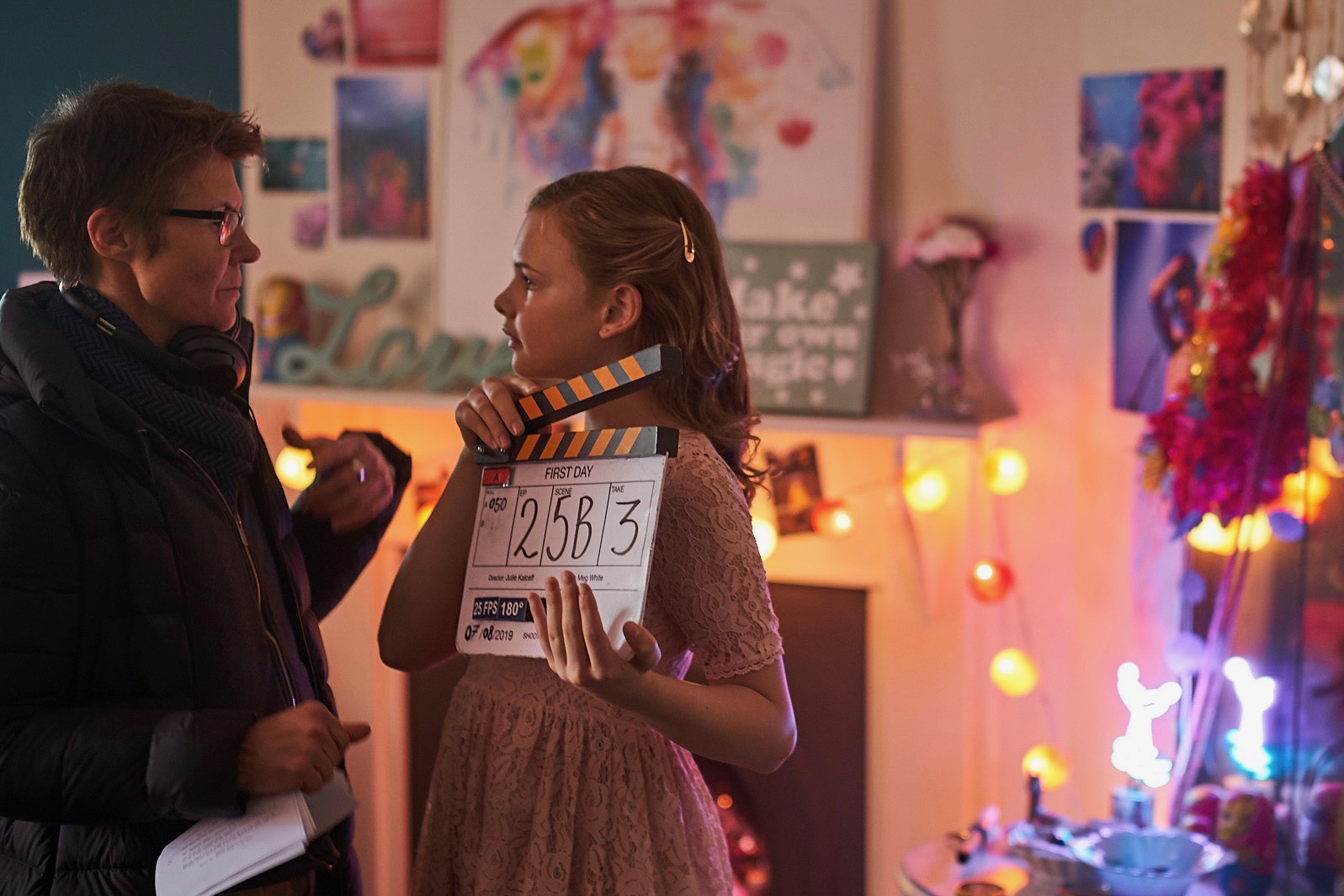
Thanks to people like Stone, more opportunities have been opening up to trans actors. “I’ve been getting a lot of auditions that have trans roles and diversity,” Macdonald says.
Macdonald started modelling at age six, and came out when she was nine. She’s been in and out of Australian media since 2018, when she appeared on TV as a 13-year-old to tell then-prime minister Scott Morrison that his comments about trans kids were hurtful and wrong.
“I’ve always been a very outspoken person—you can ask any of my family members!” Macdonald says, laughing. “When I saw something that I just wasn’t comfortable with or okay with, I was like, ‘Do you know what? If no one’s going to say anything, I am.’ That’s just how I’ve always been.”
In the years since, she’s been Australian media’s go-to on stories about trans kids—something that’s been a blessing and a curse.
“It’s pretty exciting, especially being like a teenager and having, you know, millions of people watch your stuff,” she says. “That was really cool and privileging, but I think a lot of people think it’s easy.”
Telling your story and sharing your vulnerabilities over and over is “not always easy, and a lot of people forget that.” It’s also an unfair burden to place on children, to expect them to be able to articulately advocate for their own rights and have to defend their own humanity to adults.
“A lot of my videos, which I’ve noticed, have been getting taken down for violating the community guidelines for minor safety.”
“I wasn’t really educated at the time. I guess I was fighting for my own rights, and it was hard for me to understand it fully. But I’m happy that I did it, because I know it helps in some ways,” she says. Macdonald has since taken a step back from doing that kind of press, “until I’m a bit older, and I can totally understand what I’m talking about.”
Due to Australia’s COVID-19 restrictions, Macdonald’s life hasn’t changed hugely since the first season of the show aired. (First Day’s second season was delayed and is due to start filming in July.) Macdonald has spent some of her time on TikTok, where she’s accrued more than 200,000 followers and 5 million likes since she started her account about a year ago.
“I was just doing little skits here and there and everything. And then I deleted most of them because I was embarrassed of the watch back,” says Macdonald. “I was talking to one of my friends and I realized that she was doing it and she taught me a few tricks.”
Macdonald’s content is a mix of lifestyle and advocacy—doing her makeup, pining for longtime crushes and dispelling rumours about trans women.
“When I was first watching TikTok, I noticed that there was barely any trans content. And there was a lot of misinformation on the internet. So I was like, ‘Do you know what, as somebody who is trans, I might actually spread some positivity and awareness.’”
As a trans creator on a highly censored platform, she’s run into her share of aggravating moderation decisions.
“A lot of my videos, which I’ve noticed, have been getting taken down for violating the community guidelines for minor safety,” she says. One video, featuring Macdonald in a bikini at the beach, was placed under review before being deleted due to “nudity.”
The standards on nudity were being applied unequally between different bodies—“desirable” bodies in bikinis seem to be fine, but trans and other marginalized bodies are not. “I saw a lot of popular creators posting videos and photos of themselves in, you know, their underwear or their bathers [swimsuits]. So I was like, ‘Why are they targeting people that are trans?’ Because I saw a few other trans people stepping up going, ‘Why can’t we post photos like that?’”
Beyond questionable moderation, social media has also been a place where trolls run rampant. Macdonald says her dad was instrumental in helping her make peace with internet negativity: “He helped me a lot with realizing that not everyone’s gonna accept you. But that’s nothing to do with you, that’s something to do with them.”
And that “ignore the haters” mentality feeds into the advice she has for other trans kids who might be looking for words of wisdom: “You’re the only person in the world who knows who you are. So don’t listen to what other people say. Just stay true to yourself.”
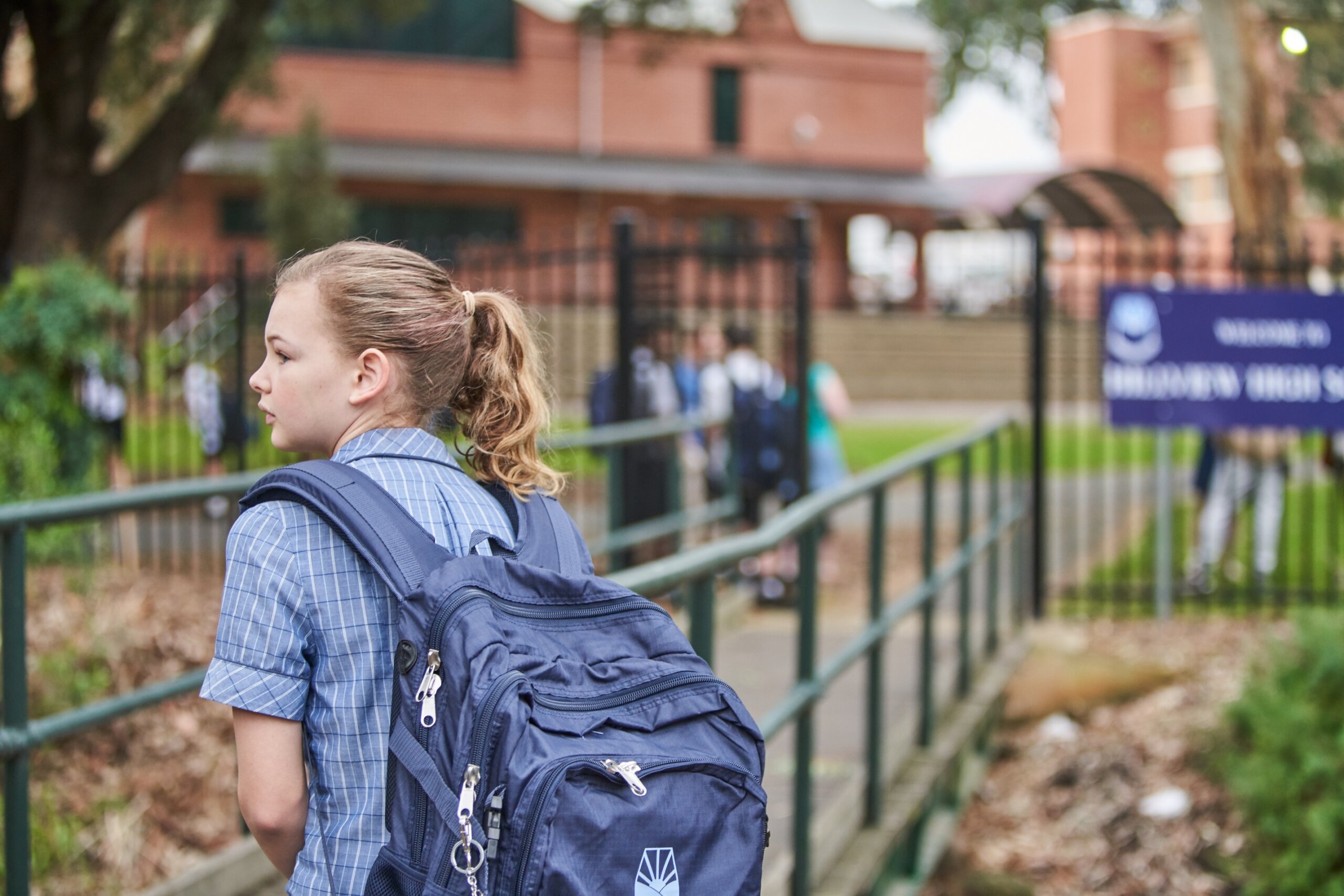
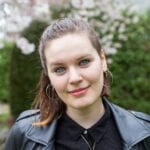
 Why you can trust Xtra
Why you can trust Xtra